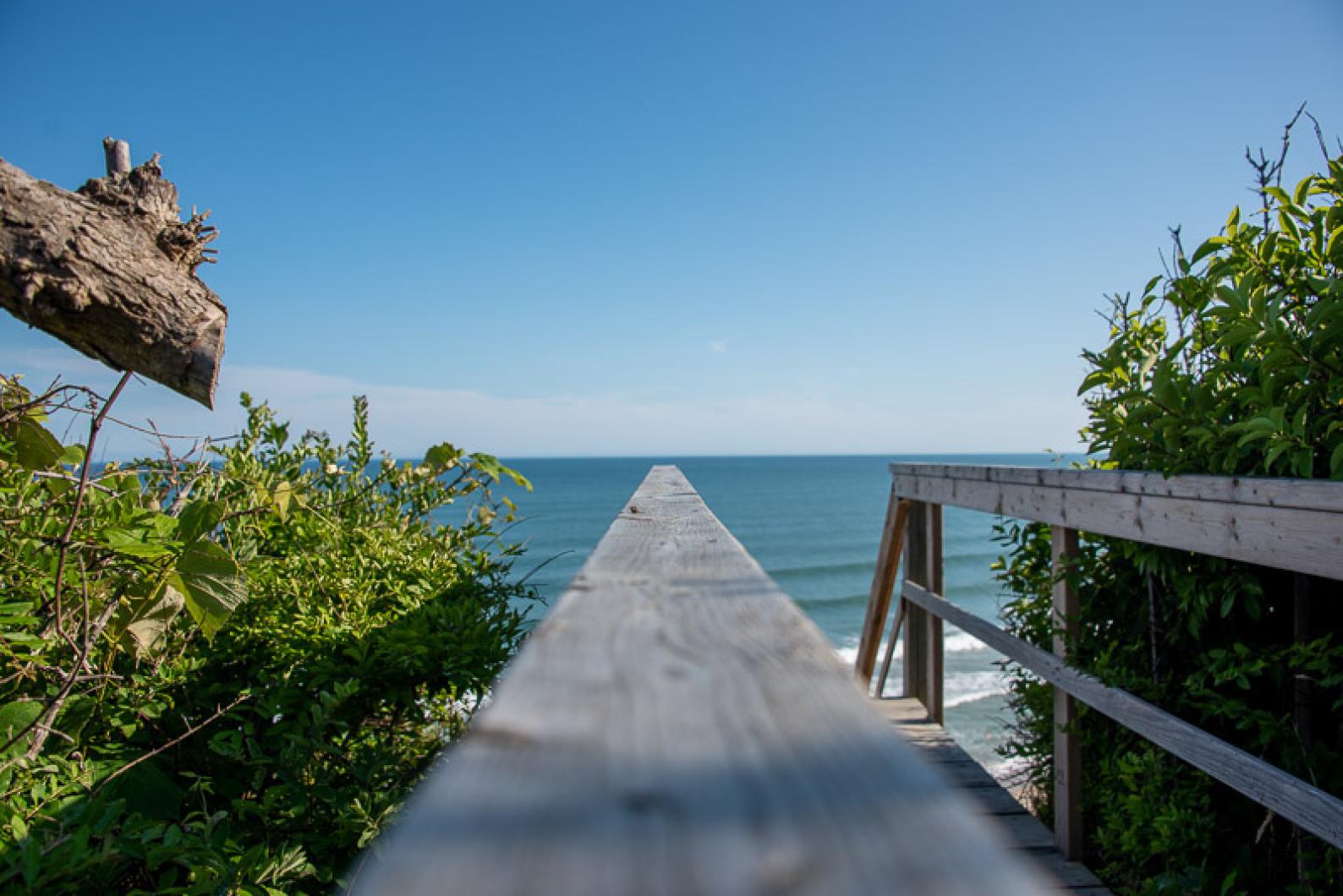I woke up Monday morning to a voicemail message from a friend that Robert Morgenthau, the famed New York city district attorney and, as many on Martha’s Vineyard knew him, summer resident of West Tisbury, had died the previous evening at the age of 99. A quick scan of the obituaries in the New York Times confirmed the call.
Bob, as he was known to his family and friends, was no longer with us. Thus ended my dear friendship with a man 55 years my senior.
In the spring of 2016, Bob’s wife, the journalist and writer Lucinda Franks, was looking for a helper for Bob. He had been coming to the Island for decades and had reached the age of 95 and Lucinda wanted to find someone to spend time with him, cook with him, go for walks with him, and just keep company with him. Soon began a chapter in my life that would remain forever special.
Bob and Lucinda came to Martha’s Vineyard that August, as they did every August, and I was there to meet them at their house in West Tisbury. We liked each other immediately and I quickly learned about what my responsibilities would be: I would come six days a week, and we would have our daily routine.
Each morning around 10, I made Bob a breakfast of cereal, berries from the place he still called Back Alley’s, with an amount of milk always determined by him with me pouring it. While he was eating, or before coming, I would stop at Alley’s to pick up the day’s papers that he read: the New York Post, the Daily News, the Wall Street Journal, the New York Times, and on the weekend, Barron’s.
After breakfast was finished, we would sit together at the table and read. These were quiet, reflective moments, with the occasional “do you want the arts section, Dean?” and “Bob, I’ve got the front page of the Times over here, if you want it.”
Reading would be followed by conversation. “So, how are we going to get rid of Trump?” Bob would say, and a conversation would ensue. (His opinion was that it would come down to the President’s taxes). The conversations were often, but not always, about politics. Bob had a winning way in his arguments, exchanging ideas with the integrity he was known for as a district attorney in New York. Sometimes he would win the argument, other times, I would. Mostly we just agreed and enjoyed the back and forth.
By the time we finished the papers, it would be lunchtime. Sometimes I’d go out to Alley’s or Morning Glory Farm for corn — Bob taught me how to make it his way in a steamer. We’d have that with a sandwich I’d make for him. He never hesitated to share, so we just made food together. Sometimes it was sautéed spinach and eggs. Other times, it was steamers we’d pick up at John’s Fish Market or The Net Result. Those lunches were a treasure.
But my favorite part of our days was going for a walk — Bob, me, and his spunky bichon frise, Ivan. It was on these walks that I learned the most about Bob and his storied life. I heard stories of his time serving in President Kennedy’s administration, of the time he was with President Roosevelt when the returns came in for one of his re-elections and of his mother’s close friendship with Eleanor. There were tales of his World War II exploits over the Pacific, and of the immigration cases he was involved with as counsel. He told me about how he had mentored Supreme Court justice Sonia Sotomayor. We didn’t talk much about the famous cases of the 1980s and 1990s, the Central Park Five, Mark David Chapman’s murder trial for killing John Lennon, and others. Those cases had slipped into the past for him, and didn’t seem too important to the views he expressed later in life.
Other times we would drive down to Menemsha to visit his old friend Everett Poole at his store on the Dutcher Dock. One time we picked up a clam rake for his visiting grandchildren and headed off to go clamming. On other occasions, we visited a beach on Menemsha Pond with his family. We were often with the family, joining them at dinners, outings and other events.
When Bob and I went out together, we were sometimes mistaken for grandfather-grandson. I never minded and I don’t think he did either. He was so generous of spirit — and honestly during those Augusts, it felt true.
On our walks Bob opened up about his love of family, which I think guided his powerful moral compass. He understood that all people needed to be treated equally and fairly and honestly. With his children and grandchildren, many of whom spent time on Martha’s Vineyard, I saw his engagement close up. And it was beautiful.
Martha’s Vineyard was lucky to have Bob Morgenthau for so many decades, and I was lucky enough to get to know him during a few fleeting summers.
I’ll miss him.
Dean Rosenthal is a composer who lives in Edgartown.




Comments (3)
Comments
Comment policy »